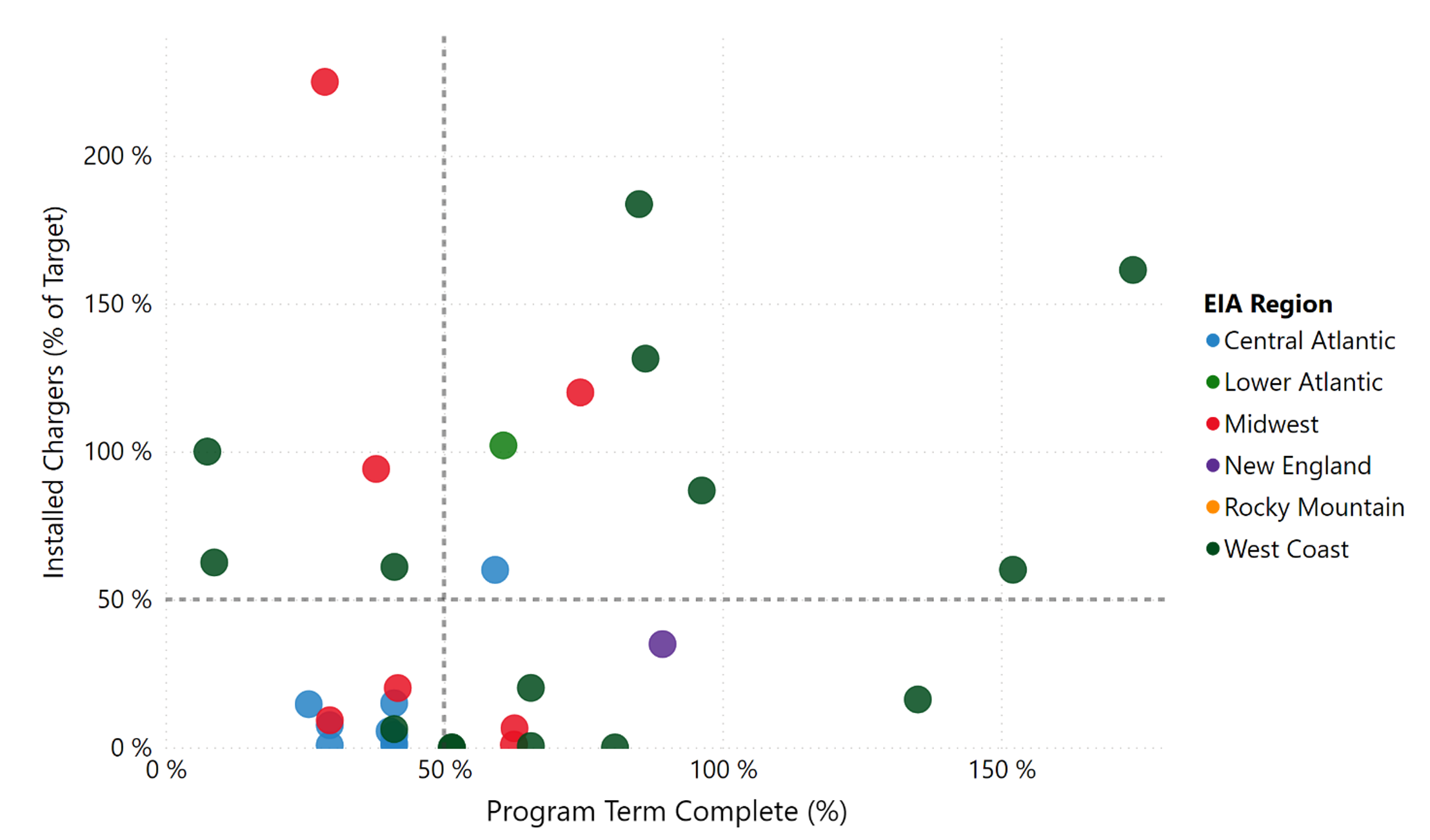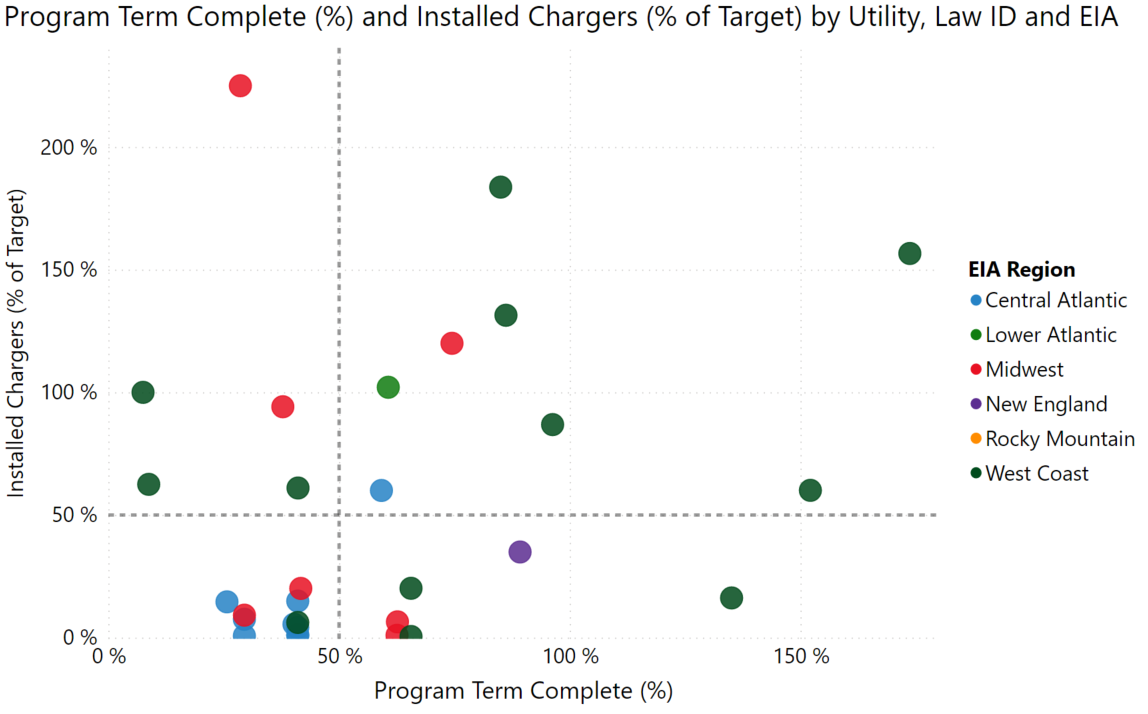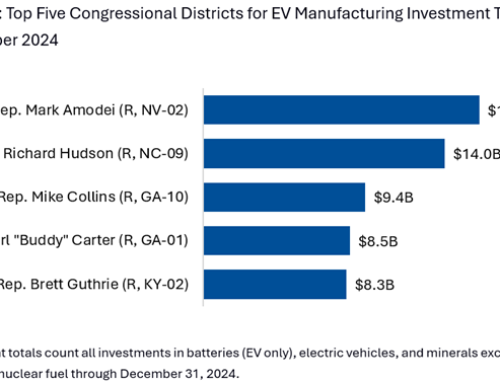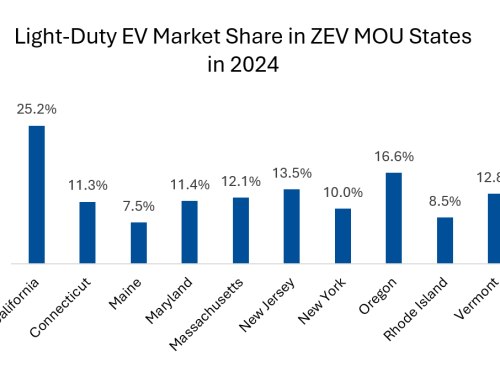
This figure plots percent of target installations against the percent of program term complete. Source: EV Hub.
I know that some weeks it is hard to keep up with developments and so here is a summary of two new pieces of analysis from Atlas.
The first piece of analysis was led by Nicole Lepre and looked at how utilities are doing against their pledges to invest in charging infrastructure. Investor-owned utilities (IOU) have been approved to invest in 112 EV programs since 2012. Atlas found reports for nearly half the programs – 50 in total – across 17 states that have been approved for investment. The question was to determine how utilities are faring with the implementation of their programs.
Here’s some key findings (drawn directly from the analysis):
-
“Programs in the sample have reached 37 percent of their targeted charger deployments and are, on average, 60 percent through their program terms.”
-
“California programs make up more than 95 percent of the reported chargers in underserved communities.”
-
“At least six out of 16 programs that reported charger deployments in underserved communities are exceeding their commitments, in many cases by more than 100 percent.”
-
“Utilities reported average hardware and installations costs of more than $8,000 per Level 2 port, with about $15,000 per Level 2 port for California programs. These costs are significantly higher than ICCT’s estimated costs of $6,000 per Level 2 port, possibly due to differences in the costs included in the utility reports and the ICCT report, or the timing of the charger installations (the California programs were approved earlier than many of the other programs included in this sample of reports).”
The second piece of research was conducted by Sarah Goldmuntz and Spencer Burget. As more and more fleets electrify, employers will look to ways to reimburse their employees for the costs they incur charging work-issued vehicles at home. Sarah and Spencer worked with the Colorado Energy Office on a reimbursement program for state employees charging State-issued electric vehicles (EVs) at home. This is no easy task, and the two found a considerable range in utility rates across the many electricity providers in Colorado.
Here’s a fun-ish fact: “Nine utilities cover over 95 percent of the State’s light-duty fleet, while the remaining five percent of vehicles are registered in 18 different utility service territories”.
To account for wide-ranging utility rates while also ensuring EV drivers are reimbursed, they recommend, “A reimbursement rate of $0.1289/kWh, with an $0.0636/kWh adder for EV drivers in Black Hills Energy’s service territory. Having a reimbursement rate and a separate adder for Black Hills Energy customers enables the State to reimburse EV drivers without significantly over- or under-reimbursing any driver.” They also recommend that the State revisit this analysis annually to account for changing rates, changes in where state employees charge, and to refresh the analysis to account for Colorado’s move to time-of-use (TOU) rate schedules.
If you’re interested, you can read more here.


